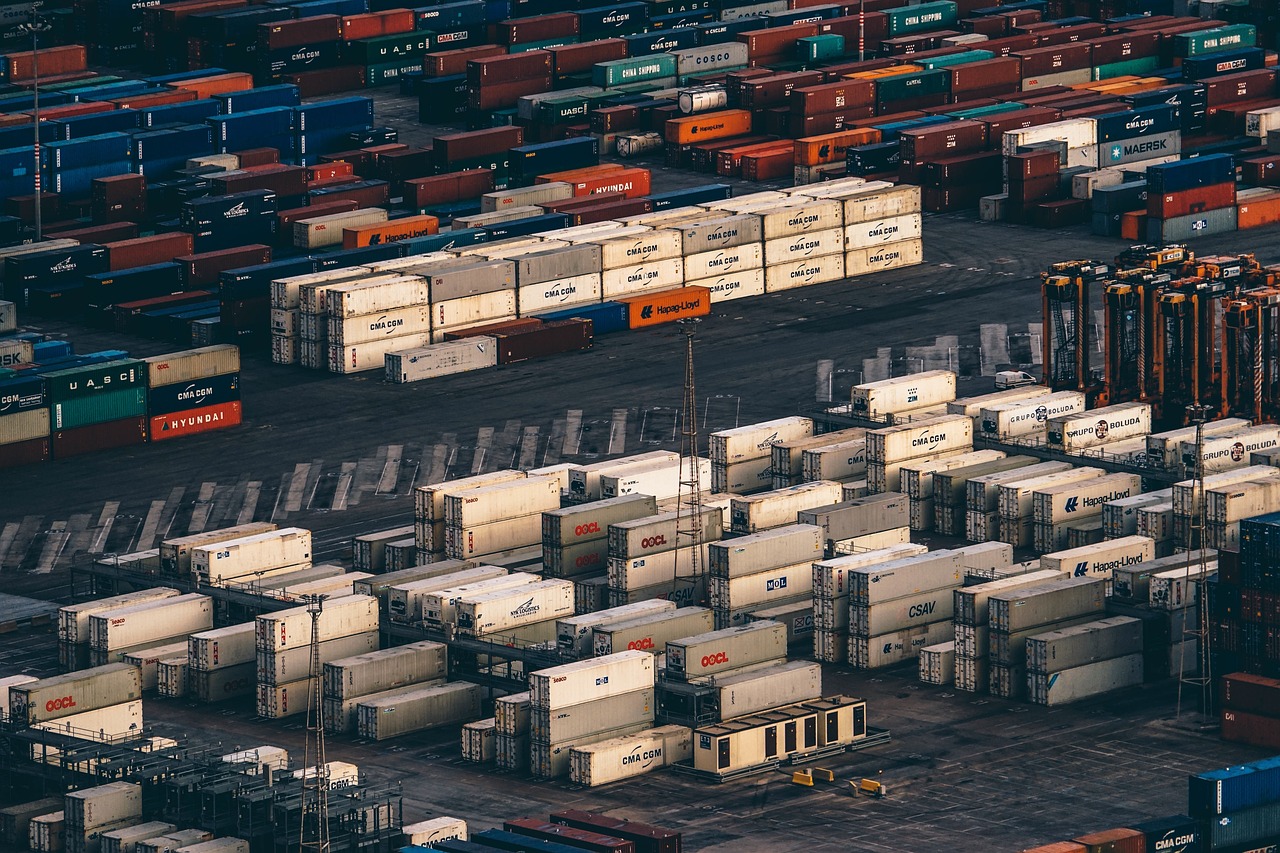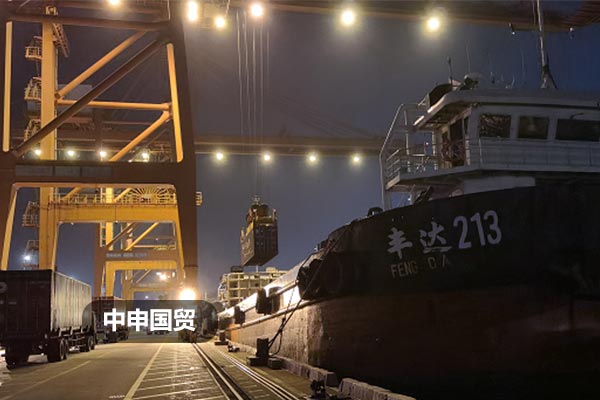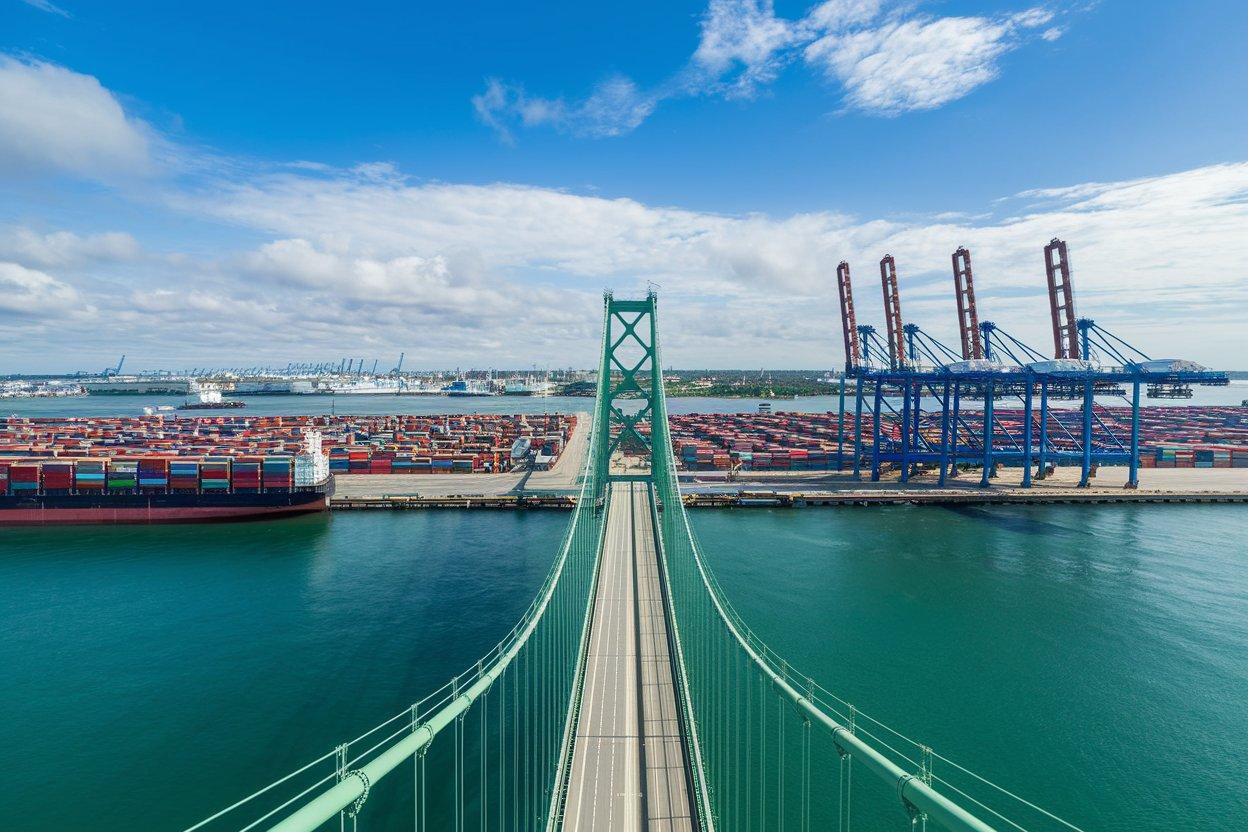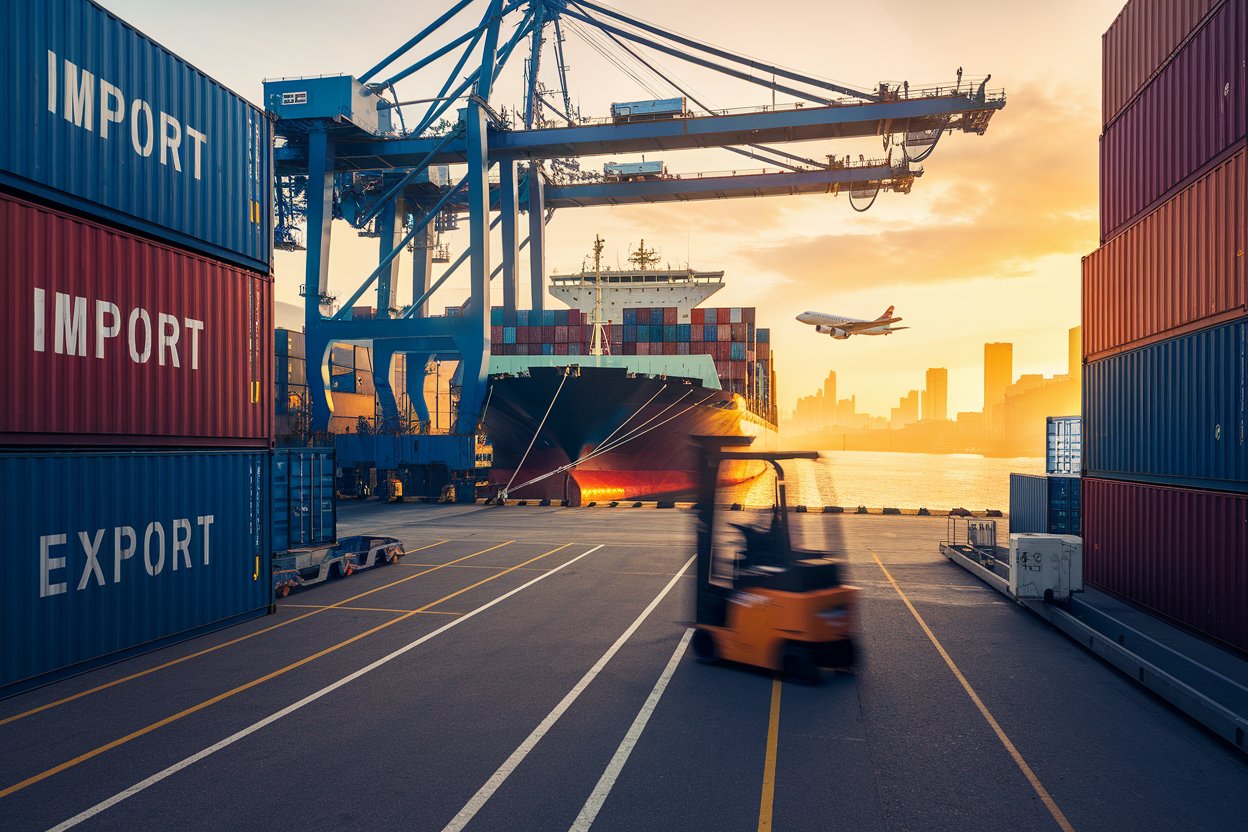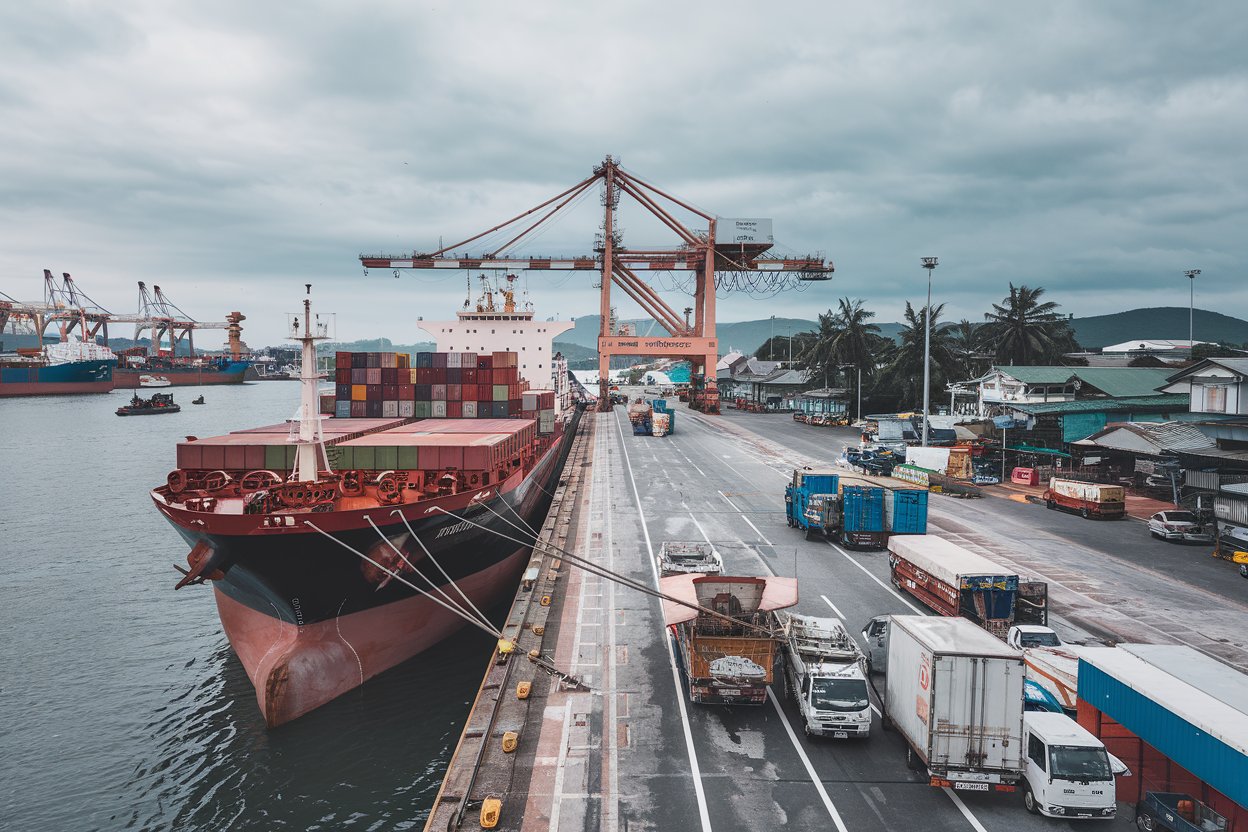- Shanghai Zhongshen International Trade Co., Ltd. - Two decades of trade agency expertise.
- Service Hotline: 139 1787 2118

Introduction
In todays globalized business environment, importing equipment such as scanners from South Korea has become an important way for many enterprises to expand their business. However, the import process involves many complex links, such as document processing, logistics arrangements,FX Settlement Agencyand product certification, etc. This article will elaborate on the relevant processes and key points around the import of scanners from South Korea to help you successfully complete the import business.foreign tradeIn the process of importing scanners, document processing is a crucial part. First is the Commercial Invoice, which details key information such as the product description, quantity, and value of the scanner, and is an important basis for customs valuation and taxation. The Packing List should accurately indicate details such as the packaging specifications, quantity, and weight of the scanner, facilitating the inspection of the goods during transportation and customs clearance. The Bill of Lading, as the certificate of ownership of the goods, the accuracy of its content directly affects the delivery of the goods.
Professional document processing and logistics arrangements
Our company has rich experience in document processing and can ensure that all kinds of documents are accurate and submitted in a timely manner. In terms of logistics arrangements, according to the characteristics of the scanner and customer needs, we will choose the most suitable mode of transportation. If the quantity of goods is small and the time requirement is high, (Air Freight) is a good choice, which can quickly deliver the goods to the destination. For large - quantity goods, (Ocean Freight) has a greater cost advantage. During sea transportation, we will maintain close cooperation with major shipping companies to strive for the most favorable freight rates and shipping space. At the same time, we will reasonably arrange the packing of the goods to ensure that the scanner is properly protected during transportation.
For example, a customer once imported a batch of high - precision scanners from South Korea. Since the equipment was relatively sophisticated and had high requirements for the transportation environment. Through professional packaging design, we used customized shock - proof materials to ensure that the goods were not damaged during long - distance transportation. At the same time, we carefully planned the transportation route and time and chose a direct flight to avoid the risks that might be brought by transshipment. Finally, the goods arrived at the customers hands safely and on time.Air TransportationCharacteristics and Advantages of Different MarketsMaritime TransportationIf your scanner import business involves the Russian market, our company has a unique advantage in VTB settlement. Settlement refers to the act in which the owner of foreign exchange income sells his foreign exchange income to a designated foreign exchange bank, and the bank pays an equivalent amount of local currency at a certain exchange rate. In trade with Russia, VTB Bank is an important financial institution in Russia. Through the good cooperative relationship we have established with VTB Bank, we can simplify the settlement process and improve the speed of funds arrival. Generally speaking, the traditional settlement process for trade with Russia may be more complicated, involving a lot of document review and foreign exchange supervision requirements. But through our VTB channel, as long as the standard trade documents required by the bank are provided, such as contracts, invoices, bills of lading, etc., the settlement operation can be completed quickly. This not only reduces the in - transit time of funds, reduces the exchange rate fluctuation risk, but also provides convenience for the enterprises capital turnover. For example, an enterprise conducts scanner trade with a Russian customer. Through our VTB settlement service, the original settlement time of 10 working days was shortened to 5 working days, greatly improving the enterprises capital use efficiency.
When importing scanners from South Korea for sale in the Southeast Asian market, understanding its import and export processes is the key. First is the export process. In South Korea, the exporter needs to prepare basic documents such as commercial invoices, packing lists, and bills of lading. At the same time, according to South Koreas export regulations, a (Certificate of Origin) may be required to prove the country of origin of the scanner, which can help to enjoy preferential tariff policies in some cases. When importing into Southeast Asian countries, the import regulations of different countries vary. Take Vietnam as an example. The importer needs to pre - declare to the Vietnamese customs before the arrival of the goods, and submit documents such as commercial invoices, packing lists, bills of lading, and import licenses (if required). The customs will inspect and value the goods and levy import duties and value - added taxes according to the value of the goods and the tax rate. In Thailand, the import process is similar, but for some specific scanner products, they may need to meet Thailands relevant product standards and certification requirements.
Characteristics and Advantages of Different Markets
Russian Market and VTB Settlement Advantages
If your scanner import business involves the Russian market, our company has unique VTB foreign exchange settlement advantages. Foreign exchange settlement refers to the process where foreign exchange income owners sell their foreign exchange earnings to designated banks, which then provide equivalent local currency at a certain exchange rate. In trade with Russia, VTB Bank is a key financial institution. Through our established cooperative relationship with VTB Bank, we can simplify the foreign exchange settlement process and expedite fund transfers.
Generally, traditional foreign exchange settlement processes for Russia can be cumbersome, involving numerous document reviews and foreign exchange regulatory requirements. However, through our VTB channel, you only need to provide standardized trade documents such as contracts, invoices, and bills of lading as required by the bank to quickly complete the settlement. This not only reduces fund transit time and mitigates exchange rate fluctuation risks but also facilitates corporate cash flow. For example, a company trading scanners with Russian clients reduced the settlement time from 10 working days to just 5 working days using our VTB settlement service, significantly improving capital utilization efficiency.
Southeast Asian Marketimport and exportProcesses and Solutions
When importing scanners from Korea for sale in Southeast Asian markets, understanding the import-export process is crucial. First, the export process in Korea requires exporters to prepare basic documents such as commercial invoices, packing lists, and bills of lading. Additionally, depending on Korean export regulations, aIt is recommended to verify through the following methods:Certificate of Origin may be required to prove the scanners country of origin, which in some cases can help qualify for tariff preferences.
When importing to Southeast Asian countries, import regulations vary by country. For example, in Vietnam, importers must pre-declare shipments to Vietnamese customs before arrival, submitting documents such as commercial invoices, packing lists, bills of lading, and import licenses (if required). Customs will inspect and appraise the goods, levying import duties and VAT based on the goods value and applicable rates. In Thailand, the import process is similar, but certain scanner products may need to comply with Thai product standards and certification requirements.
For the Southeast Asian market, we provide comprehensive solutions. In terms of documents, we assist customers in accurately preparing various types of documents to ensure compliance with local regulatory requirements. In terms of logistics, considering the numerous ports in Southeast Asia, we will select the most suitable port of discharge based on the final destination of the goods and arrange inland transportation. For example, if the final destination of the goods is Phnom Penh, Cambodia, we will choose Ho Chi Minh Port, which is relatively close to Phnom Penh and has complete logistics facilities, as the port of discharge, and then safely deliver the goods to the customer in Phnom Penh via road transportation.
Challenges and Opportunities in the Current International Trade Landscape
The current complex and volatile international trade situation has brought a series of challenges and opportunities to the import of scanners from South Korea. In terms of challenges, trade protectionism is on the rise, and some countries may set up high - tariff barriers or introduce strict import restrictions. For example, in order to protect their domestic scanner industry, some countries may significantly increase the tariff rate of imported scanners, which undoubtedly increases the import cost. At the same time, the continuous impact of the global pandemic has also brought a lot of uncertainties to international trade, such as logistics disruptions and supply chain interruptions.
However, there are also many opportunities. With the acceleration of digital transformation, the demand for office equipment such as scanners is constantly increasing. Especially during the pandemic, the rise of models such as remote work and online education has further expanded the market demand for scanners. In addition, countries are actively promoting the signing of free trade agreements, providing more tariff preferences and facilitation measures for import business. For example, South Korea has signed free trade agreements with many countries and regions. By making rational use of these agreements, importers can enjoy lower tariff rates and reduce import costs.
Facing these challenges and opportunities, importers need to closely monitor changes in international trade policies and adjust their import strategies in a timely manner. Strengthen communication and cooperation with suppliers and logistics partners to ensure the stability of the supply chain. At the same time, make full use of policy advantages such as free trade agreements to reduce import costs and improve product competitiveness.
Product certification services
When importing scanners, product certification is an indispensable part. Different countries and regions may have different certification requirements for scanners. For example, in the EU market, scanners need to meet the CE certification standard to prove that the product complies with the relevant EU directives and harmonized standards. In the United States, it may be necessary to pass the FCC certification to ensure that the electromagnetic compatibility of the product meets US regulations.
Although our company does not directly provide certification services, we will provide customers with comprehensive certification information consulting services. Assist customers in understanding the certification requirements of the target market and guide customers in preparing the materials required for certification. During the certification process, we will communicate with the certification body and timely feedback the certification progress to the customer. For example, a customer once planned to sell scanners imported from South Korea to Australia. We assisted the customer in understanding the RCM certification requirements in Australia and guided the customer in preparing relevant technical documents. Eventually, the customer successfully completed the certification and the product successfully entered the Australian market.
Conclusion
Importing scanners from South Korea involves multiple complex links, including document processing, logistics arrangement, settlement of exchange, and product certification. Our company, with its professional capabilities in document processing and logistics services, unique advantages for different markets, and in - depth understanding of the international trade situation, can provide you with a comprehensive, one - stopImport Representationservice. During the import process, we will work closely with you to jointly address various challenges, seize opportunities, and ensure the smooth progress of your import business.
Related Recommendations
Learn
Get in Touch
Email: service@sh-zhongshen.com
Related Recommendations
Contact via WeChat

? 2025. All Rights Reserved. Shanghai ICP No. 2023007705-2  PSB Record: Shanghai No.31011502009912
PSB Record: Shanghai No.31011502009912
